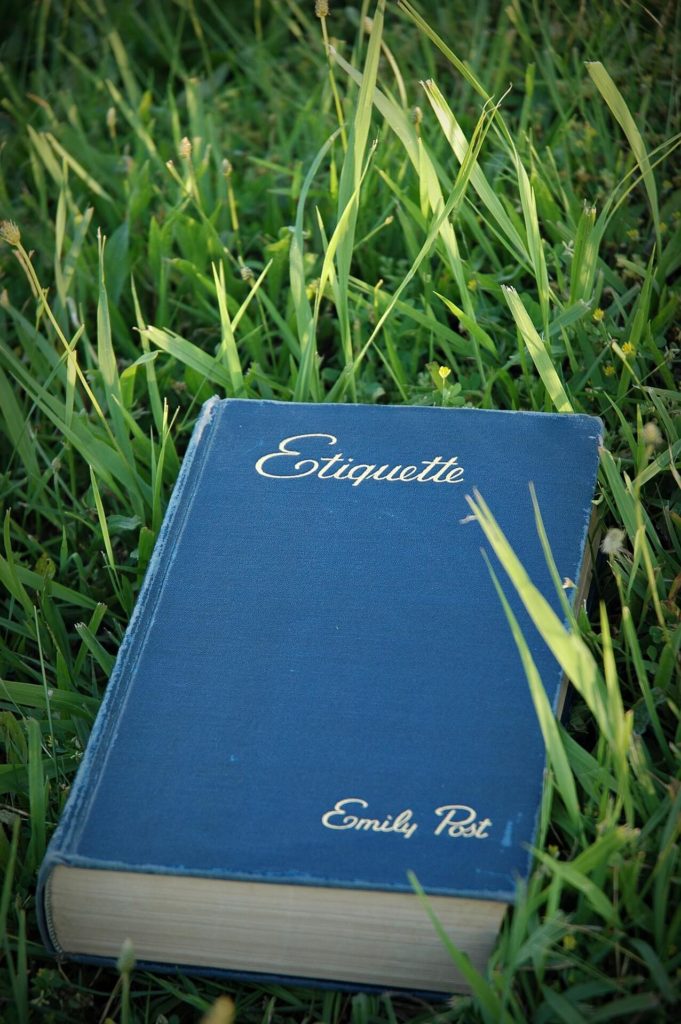I often wonder what might have been written about the Prophet ﷺ if he had visited Japan, Europe, or the indigenous peoples of the American continents. We know, for example, that the Prophet ﷺ ate in the most beautiful way: clean, tidy and in the custom of the Arabs. He ate with his hands. If he had traveled to Japan and been offered chopsticks, would he have pushed them aside and thrust his hand into bowl of rice? In Europe, would he have refused a knife offered him? Amongst indigenous peoples, would he have taken food from the communal pot without replacing quantities? Certainly not. The Prophet ﷺ had the best of manners and was one who made others feel comfortable, respecting their traditions and habits.
Islamic adab is rooted in Quran and the blessed life of the Prophet ﷺ and wrapped in positive customs. The term adab is difficult to translate into English because it includes, but is not limited to, behavior, ethics, manners, etiquette, conduct, practices, habits, civility and demeanor. Islamic adab is that which distinguishes a Muslim from others because of the elevated nature of his/her behavior, conduct and demeanor. The overriding thought process and principle behind Islamic adab is to speak and act in such a way that garners pleasure, compliments and gratefulness from those around us and, most importantly, incurs the pleasure of God.
Everything we do should be beautified with adab. How do we pass by strangers at the grocery store? How do we talk to the mechanic while paying for our oil change? How do we eat spaghetti? How do we sit in a classroom?
The concept of Islamic adab insists that Muslims should be differentiated by their immaculate interactions with other people, the environment, and ultimately – the purpose of adab – with Allah ﷻ.
Our adab should show itself on our Facebook posts, our tweets, and our Instagram shots.
Ibn Qayyim says, “Religion (Deen) is adab and if anyone has better adab than you, s/he has better religion (deen).”
The salaf (those of early generations) understood the importance of adab and sought it through the careful observance and imitation of people of God. Imam Malik’s mother sent him to his teacher to learn adab as the first priority, and knowledge as the second. Imam Ahmad was known to have thousands of listeners at his lectures. Only a small percentage would take notes and pursue scholarly behaviors, most were there to learn and imitate perfected adab.
Today we learn adab from reality television shows, news commentators, and comedians. Social media (and its anonymity) offers a whole new level of depravity.
In the 1990s New York City was able to reduce crime by 80%, when they set aside the big problems and concentrated on the environment. They cleaned up graffiti, fixed broken windows, and focused on ‘hot-spots’ (places of significant crime). Imagine if we could solve our larger community issues by focusing on adab! If we could clean up our words, fix our negative attitudes, and focus on positive behaviors perhaps we could become re-mosqued, save our youth from self-destruction and become a positive contributor to global culture.
It is time to examine our adab, refine it and elevate it, clinging tightly to the sunna of our beloved Messenger ﷺ who said, “My Lord instilled adab within me, and refined the (upbringing of) my adab.”
May we be unique in our kindness, extraordinary in our manners, and defined by our exquisite behavior. May we embody adab.

